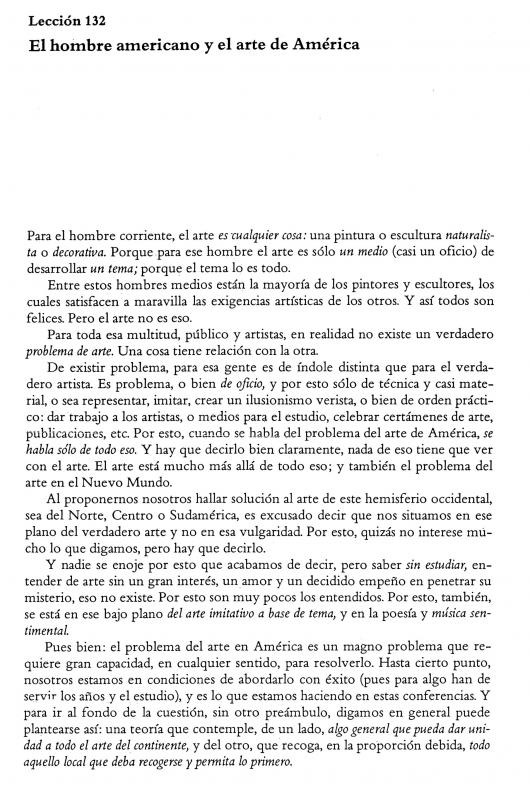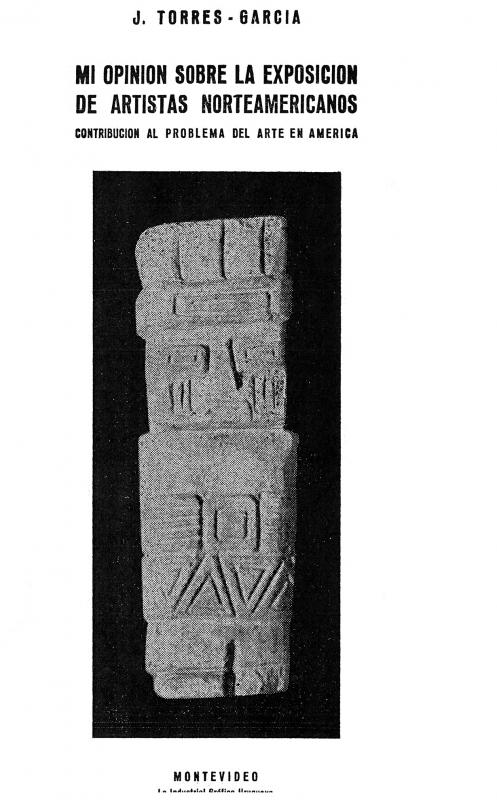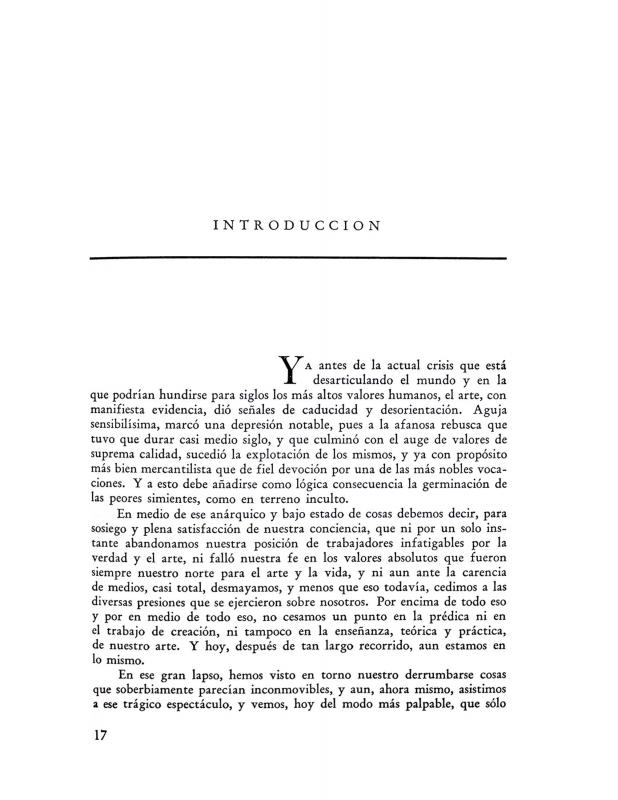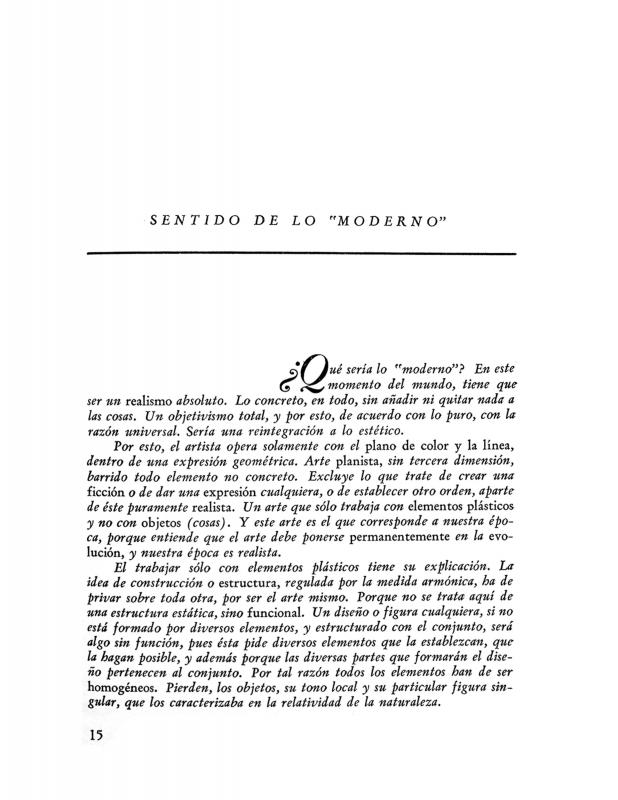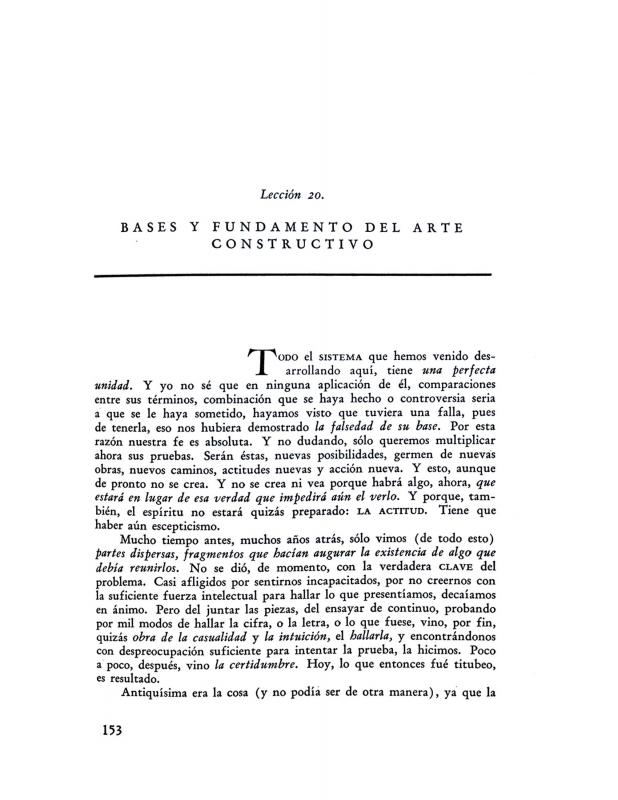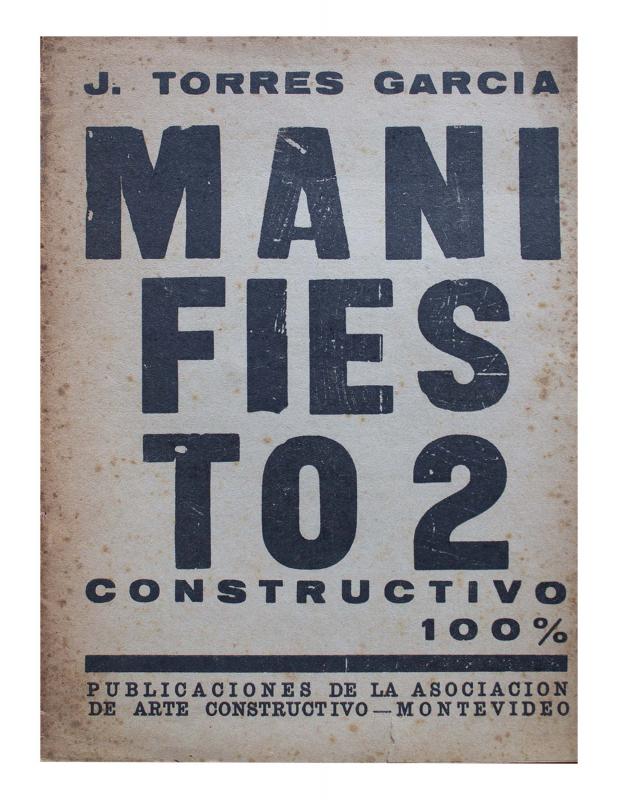While Europe was immersed in the Second World War, Joaquín Torres-García gave this lecture (in May 1941), which was then published as “Lección 131” in his book Universalismo Constructivo (Buenos Aires: Poseidón, 1944). It was republished in this issue of Removedor magazine (May 1950). The question of the autonomy of the language of the visual arts—which Joaquín Torres-García believed to be painting’s only “theme”—was a topical subject in the local aesthetic discourse at that time, and became increasingly controversial in the early 1950s in the debates about figurative and abstract art among Uruguayan artists following the maestro’s death in 1949. His words thus became part of the TTG’s doctrinaire discourse and Removedor continued to be the polemical vehicle for his ideas. In “Imitar y pintar,” Joaquín Torres-García not only insists on the autonomous nature of painting as a plastic fact—a phenomenon that goes beyond the painter’s trade to deal with the “self-awareness” that he calls “reflection” (the imposition of pictorial thought and intuition on visual perception)—but also discredits the widespread “mediocrity” of naturalist painting, such as the kind that was produced in local Uruguayan art circles. He responded harshly to his adversaries but was nonetheless resigned. In short, he emphasizes the “hard core” of his artistic approach: the religiosity that he understood as “living in the universality of the spirit […] where everything is already One, where there is no time.” Joaquín Torres-García universalism is not limited to the spatial dimension but incorporates the temporal dimension in an ahistorical sense; that is, at an abstract space-time point of convergence, “where everything is already One.”
[As complementary reading see, in the ICAA digital archive, the following articles written by Joaquín Torres-García: “Con respecto a una futura creación literaria” (doc. no. 730292); “Lección 132. El hombre americano y el arte de América” (doc. no. 832022); “Mi opinión sobre la exposición de artistas norteamericanos: contribución” (doc. no. 833512); “Nuestro problema de arte en América: lección VI del ciclo de conferencias dictado en la Facultad de Humanidades y Ciencias de Montevideo” (doc. no. 731106); “Introducción [en] Universalismo Constructivo” (doc. no. 1242032); “Sentido de lo moderno [en Universalismo Constructivo]” (doc. no. 1242015); “Bases y fundamentos del arte constructivo” (doc. no. 1242058); and “Manifiesto 2, Constructivo 100%” (doc. no. 1250878)].


